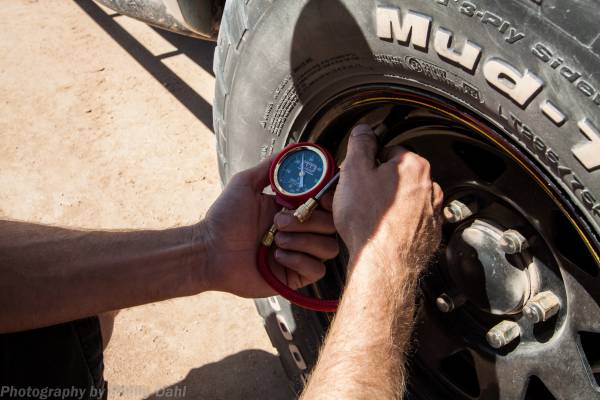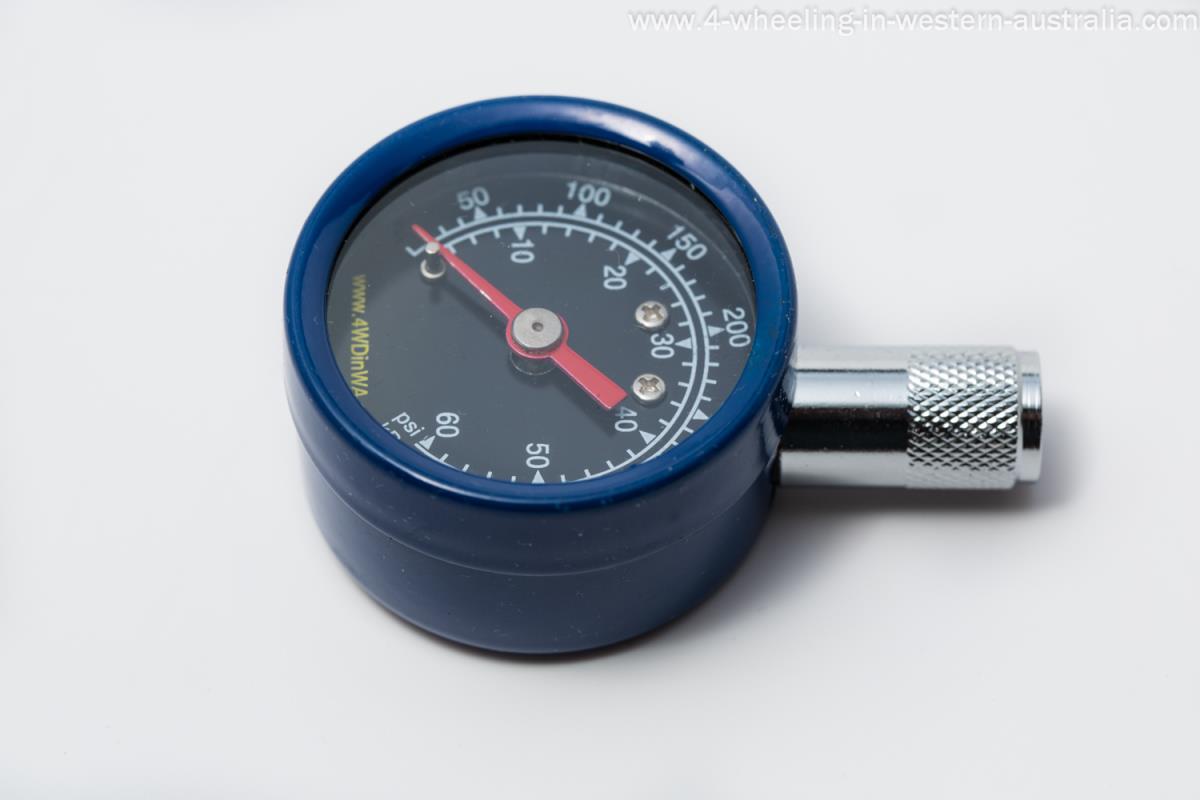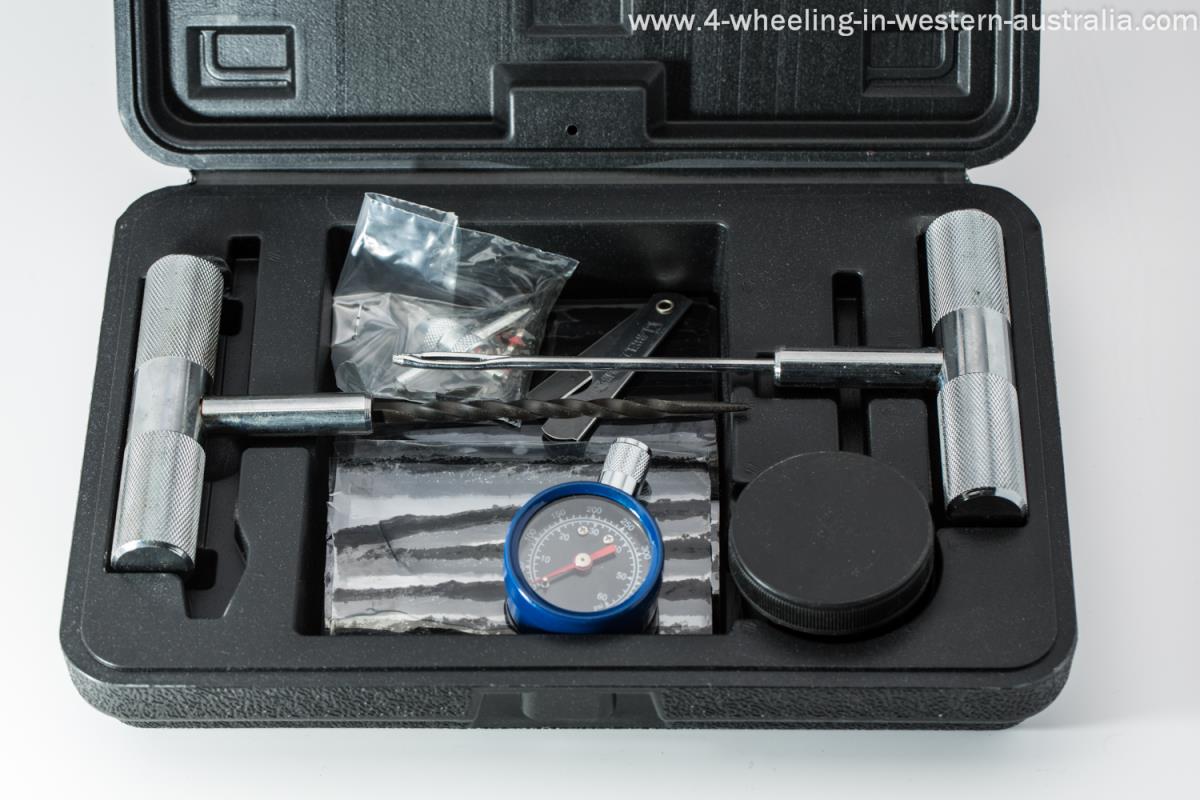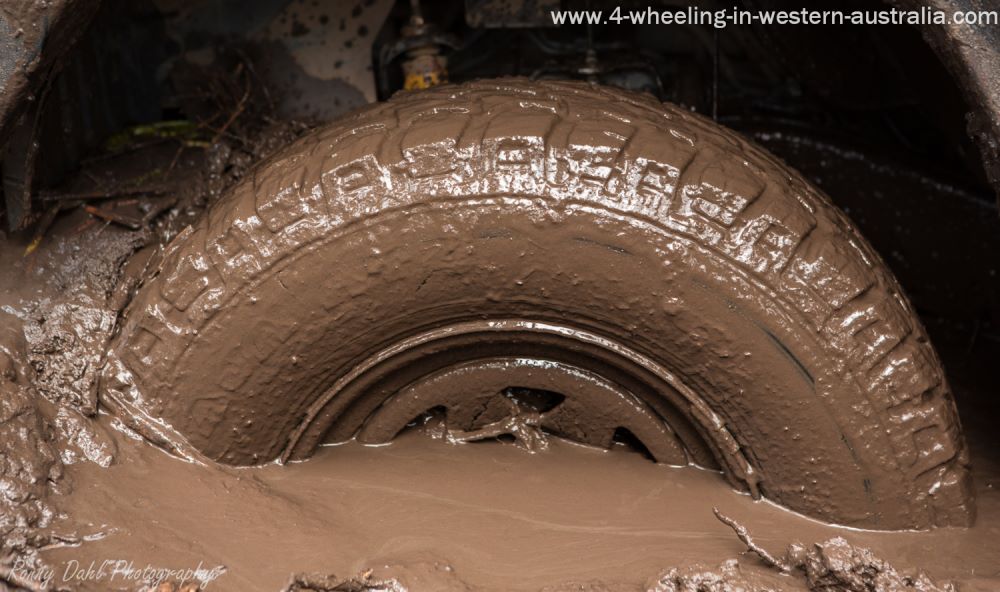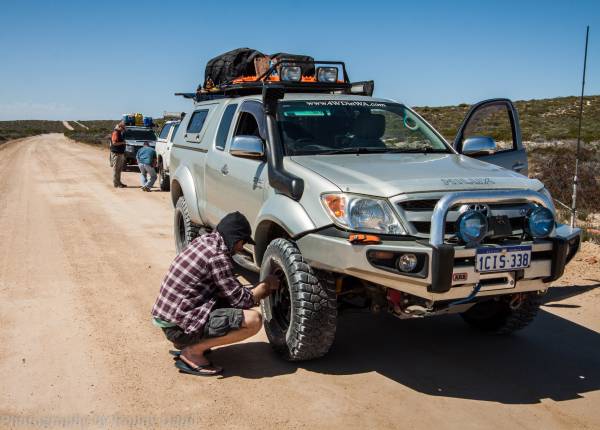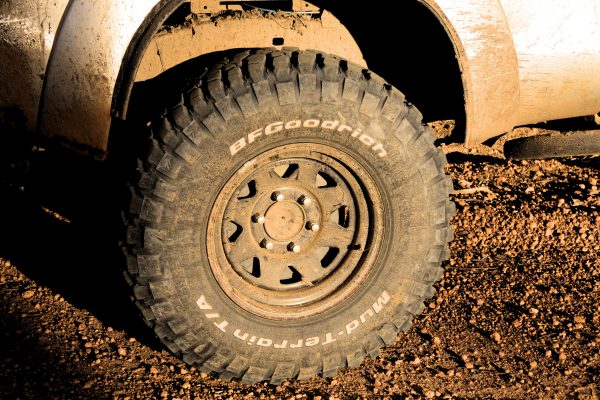
Tire Deflators.
There
are many different tire deflators on the market; most of them screw onto the
valve and release the air pressure. Below are different types of tyre
deflators.
Pre-set
screw on tyre deflators:
These come in sets of four and can be pre-set to a tire pressure at 30 down to 6 psi.
All four are to be set to the same psi and then screwed onto each valve on all four wheels.
This kind of tire deflator won't let the air out quickly but makes up for being slow as all four tyre deflators are releasing air at the same time.
The vehicle can also be driven while deflating air but only at very low speeds, it is best to wait until the desired psi is reached before off roading.
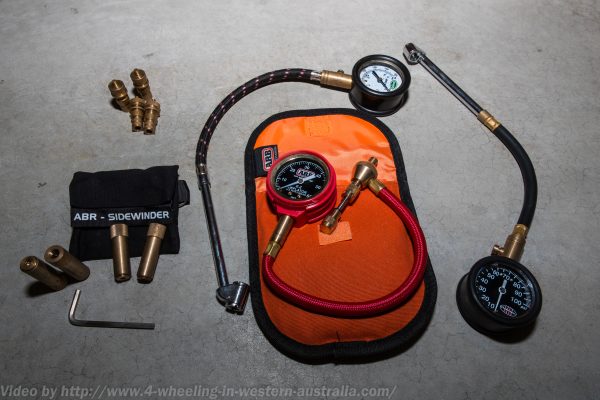
Tire Deflators.
Although they are pre-set it's a good idea to check the tire pressures after deflation as from personal experience they don't always hold the pre-set psi from the previous time they were used.
This could be caused by driving vibrations, while in storage or simply from being handled.
They are easy to adjust so just picking them up can change the psi setting and as you might know every terrain or situation requires different psi.
Expect to have to adjust the settings most of the time unless beach driving is the only off-roading you do.
Fast
tire deflators:
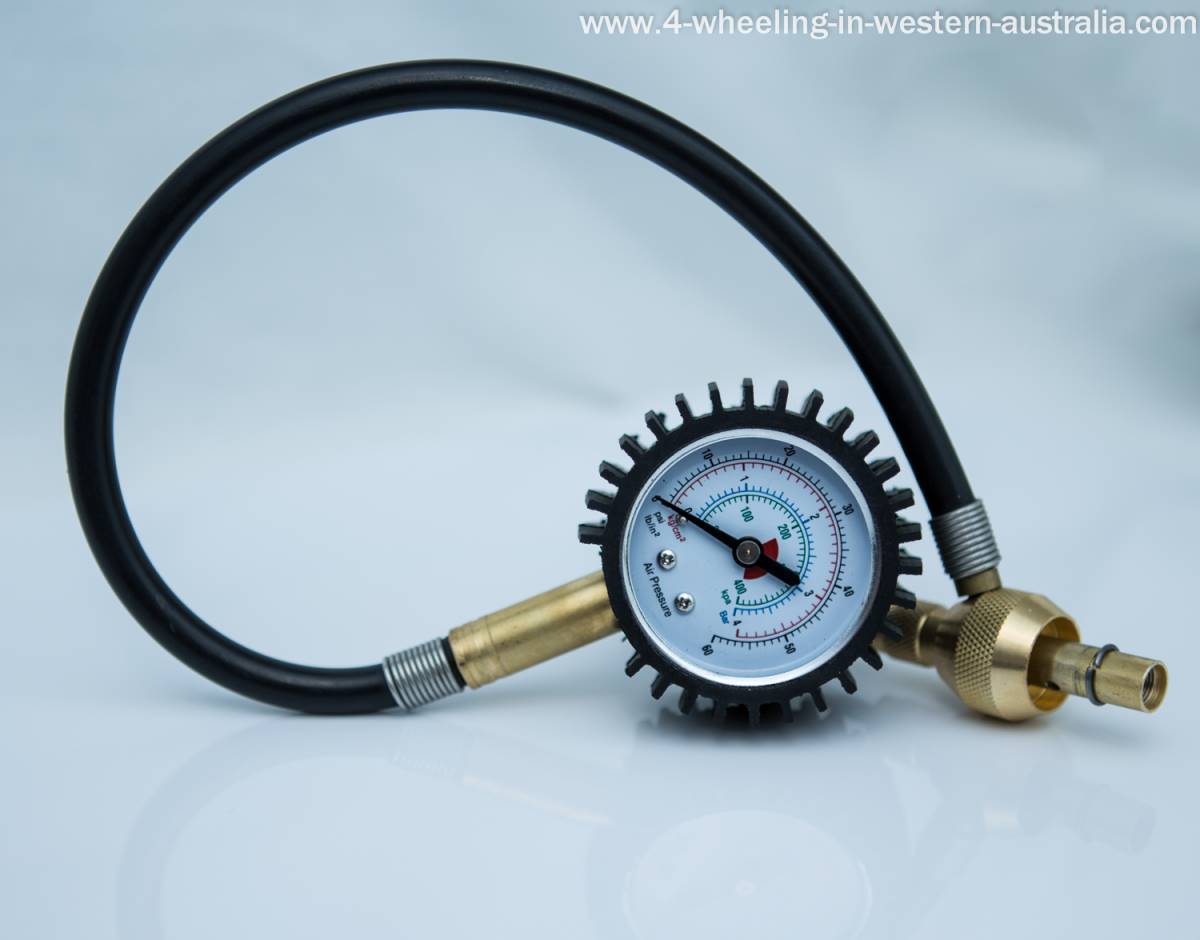
These are very fast and can deflate tires by 1 psi per second; the only way to achieve this rate of air pressure drop is by removing the inner valve which is exactly what these tyre deflators do.
First they screw onto the valve (outer valve) until it’s on the entire thread.
Secondly an internal stem requires to be pushed until it contacts the internal valve, once in contact screwing anti clockwise releases the internal valve.
Once the internal valve is completely unscrewed the tire can be deflated by pushing down on the tyre deflation device, remember to stop frequently to check the pressure on the deflator gauge as it’s easy to let too much air out.
When the desired psi is reached the inner valve needs to be screwed back in, be very careful not to over tighten as this can damage the valve and air will leak out. I know this because I have done it myself.
Using these fast tyre deflators will wear the valves over time but hopefully not before new tyres are needed, also be sure to keep the tire valve free of dirt as unscrewing a dirty tire valve can cause dirt to get stuck in the inner valve. Keeping valve caps on at all times will help prevent this from happening.
Primitive
tire deflators:
Primitive as in, what's always been around before the tire was invented and even before the wheel was invented, sticks and stones.
If you forget your tyre deflators at home, there is no reason to turn back as the perfect shaped stick or tiny rock will always be somewhere nearby when needing to deflate the tires.
They are free to use but only release air pressure slowly. They will let the same amount of psi out per second as the pre-set deflators; problem is one person can only deflate one tyre at any time.
Air Down 4 Wheel Drive And Check Tire PSI.
Tire
pressure checking devices:
This type of device should be in every 4wd as they are cheap, accurate and can actually deflate the tires as well.
However as for deflating tires these will only let out a very small amount of pressure at any time and would only really be good use for getting the tires down that extra 1/2 a psi your deflators or primitive deflation stick were not accurate enough to get.
Most tire deflators will not match the accuracy of the tire pressure checking devices, the same goes for any psi gauges on air compressor inflators.
Valve
caps:
Only use rubber valve caps as these will actually help contain any air escaping the valve if there was a leak.
Hard plastic and metal valve caps won't stop any leaks unless you’re willing to use plumbers tape every time you unscrew the caps.
Tire
repair kits:
A tyre repair kit is important to have in the 4x4 cargo, especially if using the fast deflator devices.
If damaging a tire valve a replacement valve from a tire repair kit is required.
Personal
experience with these deflators:
I first started with sticks and stones, then upgrade to a cheap version of the pre-set deflator to a more expensive brand.
These are great but anyone using the fast deflators will always finish before anyone using the pre-set deflators, as when the psi gets lower less air is being released out of the tire valve. This can be a pain if trying to achieve psi's less than 17 as this is where it really slows down.
Now I use the fast deflators which are great apart from the wear and tear on the inner valves.
This caused me to drive with my front tire as low as 5psi, I'm very lucky it was a short drive at low speeds as I could have easily have ruined my tire. After that happened, I have been checking my tires daily and will be investing in a tire pressure monitor for safety reasons.
For more information see Tyre Monitors or PSI Monitors
Recent Articles
-
Goodyear wrangler MTR
Jun 28, 24 10:27 PM
I have these on my defender 90 and my Dmax Ute. I get around 100,000 km out of them. I tried AT for one change and went back to the MTs. They are gol -
4x4 off road tracks 0 to 250 km from Perth
Nov 21, 23 07:40 PM
On this page we cover 4x4 off road tracks within a 250 km radius from Perth... -
4 Wheeling Around Jurien Bay.
Nov 21, 23 07:35 PM
Jurien Bay 4x4 tracks info and general information about the area...
- Home
- Off Road Tires / Wheels
- Tire Deflators
Leave Tire Deflators And Go To 4-Wheeling-In-Western-Australia.
